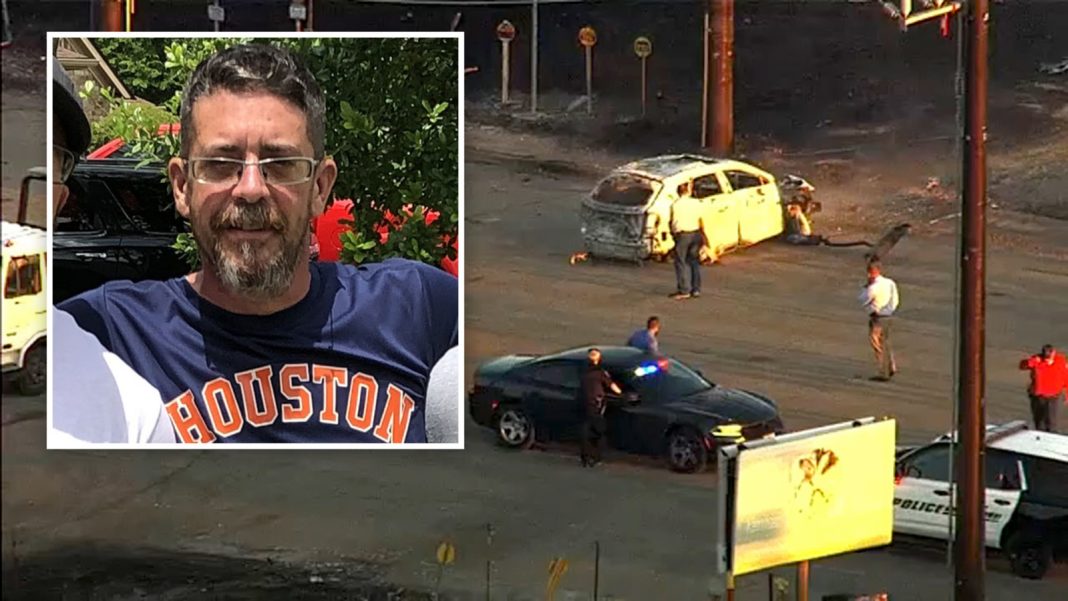In the heart of Harris County, Texas, a tragic incident has unfolded that has left the community reeling and raised serious questions about safety and medical oversight. The case centers on Jonathan McEvoy, a 51-year-old Deer Park resident whose remains were discovered inside his SUV after it collided with an above-ground pipeline valve, igniting a catastrophic fire. This harrowing event not only claimed the life of McEvoy but also disrupted the lives of countless neighbors, forcing them to evacuate their homes as flames engulfed the area.
Delma McEvoy, Jonathan’s former wife, shed light on his state of mind leading up to the incident, revealing that he left their home on the morning of September 16 with the intention of making a quick trip to Walmart. However, he never returned. Delma expressed her concern that Jonathan may have experienced a seizure prior to the crash, mentioning that he had been having seizures periodically for several months. This revelation opens a door to serious discussions about the medical conditions that can lead to sudden incapacitation while driving. According to the Epilepsy Foundation, individuals with epilepsy are at a higher risk of accidents if they have not had their condition under control, highlighting the importance of medical management for those affected.
The investigation into the crash is ongoing, with authorities still piecing together the events that led to the collision. Preliminary reports indicate that McEvoy’s vehicle veered off Spencer Highway, crashed through a chain-link gate, and struck the pipeline valve, resulting in an explosion that sent flames leaping into the sky. The aftermath was devastating; residents living nearby returned to find their homes damaged by the fire, with melted vehicles and water damage from firefighting efforts marking the landscape of their once peaceful neighborhood.
Forensic experts employed radiographic comparison techniques to identify McEvoy, a method often used when only skeletal remains are available. This process, which compares skeletal structures in ante and post-mortem images, underscores the advanced forensic technologies that can provide closure in tragic circumstances, even when the identification process is fraught with challenges.
While the investigation is still in its early stages, the authorities have yet to disclose the specific cause or manner of McEvoy’s death. This lack of information can be particularly unsettling for families left in the wake of such tragedies, as they seek answers and a sense of closure. In the absence of clear findings, communities often turn to each other for support, sharing their fears and concerns about safety in their neighborhoods.
In the wake of this incident, it is crucial for local authorities to reassess safety measures surrounding pipeline infrastructure, especially in areas frequented by vehicles. The incident has sparked discussions about the need for stricter regulations and monitoring systems to prevent similar tragedies in the future. The emotional toll on families and communities affected by such disasters cannot be understated; it is imperative that both medical and regulatory measures are in place to protect individuals who may be at risk of sudden medical emergencies while driving.
As the community of Deer Park grapples with the aftermath of this disaster, the focus will undoubtedly shift toward healing and prevention. Conversations about driver safety, medical preparedness, and infrastructure resilience are more important than ever. In a world where unexpected events can change lives in an instant, proactive measures and heightened awareness could be the key to safeguarding not just individuals like Jonathan McEvoy, but entire communities.
